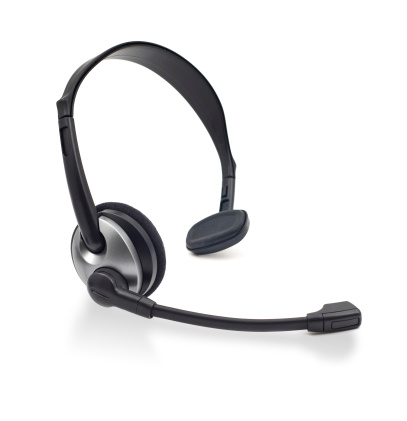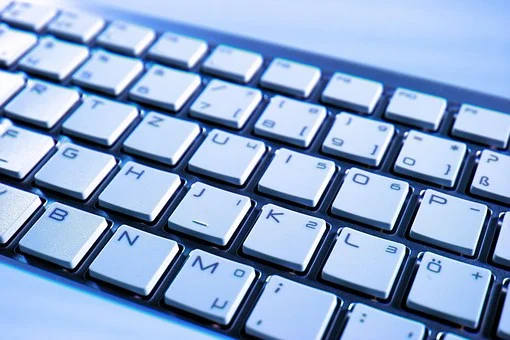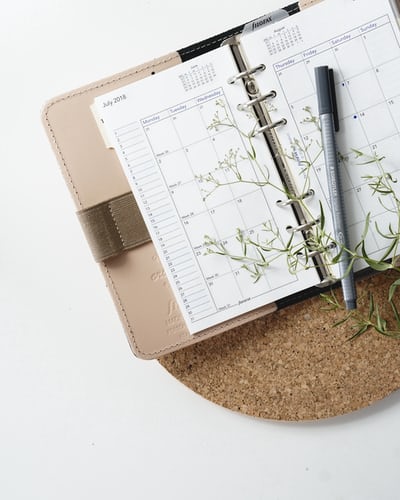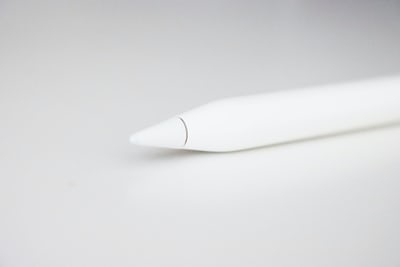The other day, an oral historian got in touch with me to transcribe an audio on refugees in Sudan. It was about a two-hour long audio file. Exciting right? Well yes, I mean transcription is fun but, in this case, I just had a couple of issues that I felt I needed to share and not to shame, no, no, no, but to help future oral historians looking to collect audio data. To better understand the issues, let’s start from the beginning.
So, there I was typing away, learning and excited about this new project, then at around the one-hour mark, someone or something starts banging away at what seemed to be a keyboard. And for sure it was a keyboard, hitting the full stops, the spacebar, I could hear all of it, all the while trying to capture the audio content. I prayed at some point it would stop but dear Lord it went on for the remaining one hour.
Did I mention this dear oral historian was recording this whole interview over what seemed to be a phone that had been placed right next to the keyboard being typed on? After a while, I worked out the oral historian was the one typing, by the way apologies kept pouring out of the oral historian to the interviewee over the pauses in-between the typing. If that wasn’t hard enough to bear, five minutes into the audio, a phone call came through that was cut mid ring, notifications and what seemed to be pop ups on the phone that I believe was recording the interview.
Now I’m not here to hate on the oral historian’s way of collecting data as I said before. To be fair, the oral historian probably didn’t have the intention of having the audio transcribed by someone else other than themselves. But I knew I had to write a blog to offer a few tips about recording interviews and what I’d recommend.
So, what are the three tips that you want to do when you’re recording a phone interview?
Equipment

Invest in proper equipment, get an ear piece or headset with a mic. What that is going to allow you to do is be hands free. The reason why, I assume, she placed her phone on her desk was because she wanted to use her hands, to type of course, so she couldn’t hold her phone next to her ear. Buying headsets or some form of microphone that goes into your ear will allow you to be handsfree.
Being hands free while using a headset or earbuds has two major advantages, one is you’re hands free, so you can take notes and two the microphone is closer to your mouth which means that you’re going to get better quality audio. Proximity is a major factor in recording. The closer the microphone is to the audio sound, the better the audio quality. That works for any microphone, it does not matter how good or bad the microphone is. If you have a good microphone that is very far away and a very crappy and one that is very close, the one that is close will always record better audio than the one that is far away.
So, get a headset or earbuds. They are very cheap on Amazon or your local stores. You can get a pair for $10. If you want to spend $200 on air pods that’s fine also, but no need to be fancy-schmancy, just grab yourself a cheap pair and they will serve the same purpose.
Avoid Typing

Do not type. Banging away on the keyboard while conducting the interview seems really odd if you ask me. If you are conducting an interview and you are going to get the interview transcribed, do not type. In fact, you want to make as little sound as possible because all those sounds are going to get picked up by your recording, then your audio will be unclear and if you’re going to get it transcribed you might end up paying more money to get it transcribed and it may not be accurate with all the clarity issues. Just a whole slew of issues you want to avoid.
If you need to take notes, use a pen and paper, they are quieter hence less distractions. By being quiet, you get a better recording and you also have the advantage of being able to give your undivided attention to what the interviewee is telling you. In my personal opinion, I believe if you’re recording the interview, you really should not be taking notes while conducting the interview.
The recording part and the capturing of the data is being done by the recorder so you do not need to involve yourself in that part. Don’t take copious notes, just write a word and after the interview, take time to write your notes on what your thoughts were after the interview. During the interview, your main job is to listen to what the other person is saying, that’s what good interviewers do. You’re not interviewing them to take notes, you’re interviewing them to listen and gather information from them. You’re probably going to get the audio transcribed, so forget about typing it out.
Clear Your Schedule

Finally, if you’re going to conduct an interview clear your schedule. No calls, no interruptions and text, switch off notifications from Twitter, Facebook or any other app you got running on your phone. Give your interviewee your undivided attention. Because once you get interrupted, excusing yourself, eats into not only your time but more importantly their time. That’s not good interviewing etiquette. As a transcriber, if I can hear the notification or call or pop up or any activity on your phone, you can be sure the interviewee can hear them as well. We don’t want the interviewee to feel like their time is not precious and respected. As much as possible, reduce interruptions. Book out your time for the interview and ensure you’re not getting called and interrupted.
Check out my blog on 3 Top Tips When Recording Oral History Interviews to help you further improve your oral history interview recordings.
Those are my tips for you today, hopefully they were helpful. Feel free to contact us if you have any questions or comments. Kindly keep us in mind for any of your transcription needs. Catch you on the flip side and remember always be kind, try to stay positive and learn to unwind.
